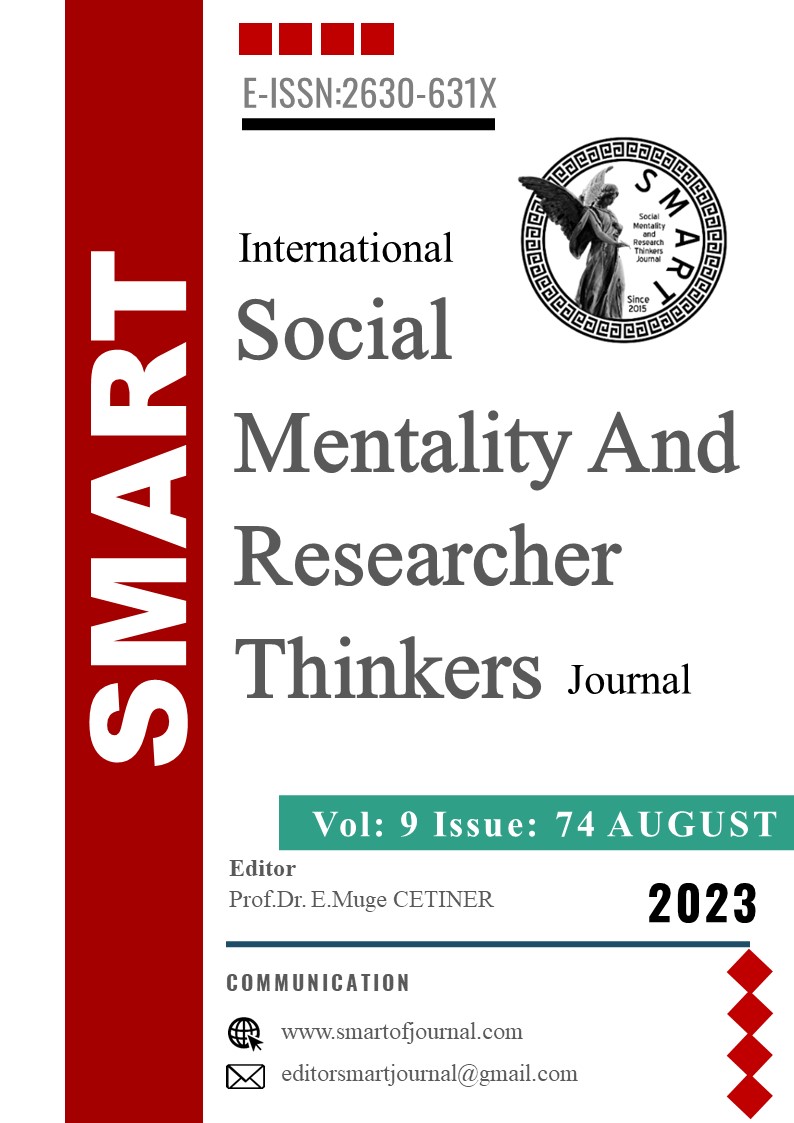Author :
Abstract
Bu çalışmada, özellikle Alman edebiyatında sıklıkla kullanılan bir kavram olan Weltschmerz mefhumu üzerinden, edebiyatımızdan Ayfer Tunç’un Dünya Ağrısı ve Fransız edebiyatından Georges Perec’in Uyuyan Adam adlı eserleri ele alınmıştır. Çalışmada, Alman filozof Arthur Schopenhauer’in görüşlerinden yararlanıldığı için felsefeye dayalı inceleme yöntemi tercih edilmiştir.
Antik dönemden itibaren insanlığın karşı karşıya geldiği kötümser düşünce, pek çok filozof ve sanatçıyı meşgul etmiştir. Çalışmada Herakleitos’tan Schopenhauer’e kadarki tarihsel süreçte, kötümserlik düşüncesinin gelişimi ana hatlarıyla ele alınmış ve özellikle 18. ve 19.’yy.da bu düşüncenin kavramsal dışavurumu olan Weltschmerz’e değinilmiştir. Dilimize ‘dünya ağrısı’ olarak aktarılması mümkün olan bu kavram çeşitli tanım ve yönleriyle ele alınarak, seçilen edebi metinlerin çözümlenmesinde kullanılmıştır.
Çalışmada kullanılan edebi metinlerden ilki Fransız yazar Georges Perec’in Uyuyan Adam adlı eseridir. Bu eserde, ismi belirtilmeyen yirmi beş yaşındaki bir karakterin kendi yaşamına ve topluma dönük sorgulamaları öne çıkmaktadır. Bir diğer edebi eserse, Ayfer Tunç’un Dünya Ağrısı adlı romanıdır. Bu romanda, doğup büyüdüğü ve uzaklaşmak istediği halde kaçamadığı kentte mahsur kalan Mürşit’in hikâyesi anlatılmıştır.
Çalışmada, her iki esere yansıyan yaşamdan duyulan mutsuzluk, Weltschmerz kavramı ve bu kavramın nitelikleriyle ele alınmış, karakterlerin dünya ağrısı çekmelerinin nedenleri biyografik, felsefi ve toplumsal etmenler ışığında açıklanmaya gayret edilmiştir.
Keywords
Abstract
In this study, Ayfer Tunç's Dünya Ağrısı from our literature and Georges Perec's Uyuyan Adam from French literature are discussed, especially through the concept of Weltschmerz, a concept that is frequently used in German literature. In the study, since the views of the German philosopher Arthur Schopenhauer were used, the philosophical analysis method was preferred.
The pessimistic thought that humanity has faced since ancient times has occupied many philosophers and artists. In the study, the development of the idea of pessimism in the historical process from Heraclitus to Schopenhauer is discussed with the main lines and especially in the 18th and 19th centuries, Weltschmerz, the conceptual expression of this thought, is mentioned. This concept, which can be transferred to our language as 'world pain', has been used in the analysis of selected literary texts by considering various definitions and aspects.
The first of the literary texts used in the study is the Sleeping Man by the French writer Georges Perec. In this work, the questions of an unnamed twenty-five-year-old character about his own life and society come to the fore. Another literary work is Ayfer Tunç's novel Dünya Pain. In this novel, the story of Mürşit, who is stuck in the city where he was born and grew up and could not escape even though he wanted to get away, is told.
In the study, the unhappiness felt from life reflected in both works has been handled with the concept of Weltschmerz and the characteristics of this concept, and the reasons for the characters' suffering from the world have been tried to be explained in the light of biographical, philosophical and social factors.





